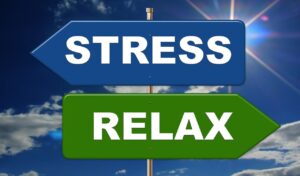In the realm of modern society, the concept of burnout, originally coined by psychologist Herbert Freudenberger in the 1970s, has gained significant prominence. It characterizes a state of emotional, physical, and mental fatigue stemming from prolonged stress and excessive workloads. Burnout transcends mere feelings of fatigue, encompassing a profound sense of disillusionment, detachment, and a diminishing sense of achievement. There are various ways one can deal with burnout.
Its prevalence spans across various demographics, impacting individuals ranging from students and professionals to caregivers and healthcare workers. The repercussions of burnout extend beyond personal boundaries. It is crucial to deal with burnout as it can often affect interpersonal relationships, productivity levels, and overall wellness. Recognizing the root causes, identifying symptoms, and implementing effective coping strategies are essential steps in addressing burnout and cultivating healthier environments both in work and personal life.
Impacts Of Burnout

If you have been feeling constant stress for a very long time and eventually feel exhausted and drained throughout the day, then you are heading toward burnout. It can negatively impact your entire body and mind. Some of the major impacts of burnout are as follows:
Troubled Immune System
In dealing with burnout, one must tandem with chronic stress! Burnout orchestrates a systemic compromise of your immune defenses, rendering you vulnerable to an array of health maladies and infectious agents. This susceptibility stems from the pervasive inundation of anxiety and pressure, which insidiously erodes our physiological resilience. Thus amplifying the intricate interplay between mental strain and somatic susceptibility.
Persistent Fatigue & Gastrointestinal Issues
Burnout’s chronic fatigue disrupts sleep, exacerbating health issues and fueling stress. Also, the overall sense of burnout is a damaging cycle of strain. The encroachment of burnout upon our cognitive faculties diverts our focus from maintaining balanced dietary habits and regular sleep cycles. Thereby instigating perturbations in body metabolism. This cascade of digestive ailments, among which acid reflux and Irritable Bowel Syndrome (IBS), frequently intertwine with the complex tapestry of burnout’s emotional and physical toll.
Muscle Pain
Persistent stress induces muscular tension, particularly concentrated in the neck and shoulders, culminating in strain and discomfort. This somatic response frequently coincides with the onset of headaches and migraines. Further compounding the individual’s physical and cognitive distress.
Hormonal Imbalance
The protracted exposure to stress and anxiety precipitates a cascade of hormonal dysregulation, intricately disrupting the delicate equilibrium of bodily functions. This imbalance manifests multifaceted health ramifications, including fluctuating mood states, compromised immune resilience, and perturbations in metabolic processes.
Dealing With Burnout

If every day is a bad day for you and you are constantly getting the feeling of exhaustion, then you need to deal with your burnout on an immediate basis. Here are some very basic but very effective ways to get off the emotional turbulance.
Prioritize Sleep
To deal with burnout, one must secure 7- 8 hours of restorative sleep. Getting a good night’s sleep is pivotal for nurturing mental well-being and optimizing productivity. Following an inadequate sleep routine can precipitate the onset of sleep disorders intricately entwined with elevated rates of burnout. These disorders, ranging from insomnia to sleep apnea, disrupt the delicate equilibrium of our sleep-wake cycle. Thus exacerbating the risk of burnout through a labyrinth of physiological and psychological pathways.
Exercise Daily
Exercising is crucial to deal with the problem of burnout. It helps you counter stress and exhaustion on time. Further, physical activity strengthens both our body and mind, empowering us to navigate life’s challenges with resilience and grace.
Set Boundaries
To deal with burnout, one should make oneself the priority. Establish boundaries within your professional and social spheres, safeguarding your mental well-being. By delineating clear limits, you cultivate a unique balance that nurtures both personal and professional growth. Thus fostering resilience and empowering yourself to navigate life’s complexities with steadfastness and grace.
Find Ways To Unwind & Follow A Balanced Diet
To deal with burnout, one must dedicate some time to hobbies or things they are passionate about. It will help you unwind and recharge your mind. It reduces stress and promotes a feeling of satisfaction. Also, a nutrient-rich balanced diet is a cornerstone of immunity and stress resilience, mitigating the risk of burnout.
Seek Support And Communicate
Though burnout may isolate, remember you’re not alone. Reach out to family, friends, or professionals. To deal with burnout, one must embrace vulnerability, seek help, and unlock strategies for stress management and burnout prevention. Strength lies in acknowledging your needs and seeking support for well-being.
In conclusion, burnout is a pervasive issue that affects individuals across various aspects of life, from professional to personal spheres. It encompasses emotional, physical, and mental exhaustion, often exacerbated by chronic stress and excessive workloads. The repercussions of burnout extend beyond individual boundaries, impacting relationships, productivity, and overall well-being. Recognizing the signs and symptoms of burnout, as well as implementing effective coping strategies, are vital steps in addressing this issue and fostering healthier environments. It’s crucial to prioritize self-care, establish boundaries, seek support when needed, and engage in activities that promote relaxation and rejuvenation. By addressing burnout proactively and holistically, individuals can work towards maintaining balance, resilience, and well-being in their lives.



